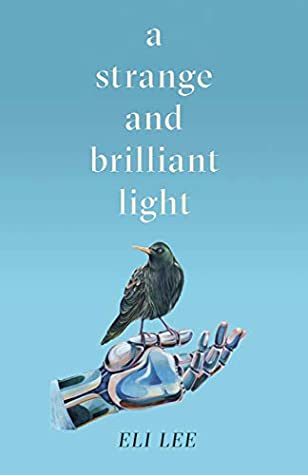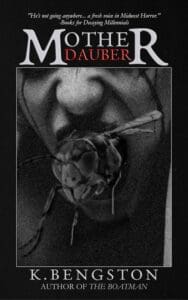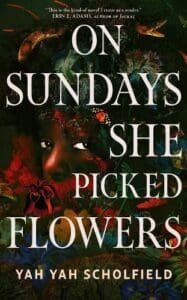Review: 7.0/10
Synopsis
Lal, Janetta and Rose are living in a time of flux. Technological advance has brought huge financial rewards to those with power, but large swathes of the population are losing their jobs to artificial intelligence, or auts, as they’re called. Unemployment is high, discontent is rife and rumours are swirling. Many feel robbed – not just of their livelihoods, but of their hopes for the future.
Lal is languishing in her role at a coffee shop and feeling overshadowed by her quietly brilliant sister, Janetta, whose Ph.D. is focused on making auts empathetic. Even Rose, Lal’s best friend, has found a sense of purpose in charismatic up-and-coming politician Alek.
When vigilantes break in to the coffee shop and destroy their new coffee-making aut, it sets in motion a chain of events that will pull the three young women in very different directions.
Change is coming – change that will launch humankind into a new era. If Rose, Lal and Janetta can find a way to combine their burgeoning talents, they might just end up setting the course of history.
Review
First, I’d like to thank Ella and everyone at Jo Fletcher for the review copy; it in no way effected my review.
A Strange and Brilliant Light in the political, thought-provoking debut from Eli Lee that poses the question of AI in a dystopia where humans are losing their jobs in tech advancement and puts it to several vastly different but interconnected POVs that answer in the way they move through the novel and navigate this new world.
This novel is intimate, it isn’t a book that focuses on the advanced technology that starts to creep its way into the story, it’s a book that focuses on the characters and what it means to their lives. It’s a deep dive into the way technology can have both negative and positive effects on the lives around it, and the ramifications and solutions we need to both think about and prepare for when this eventually hits. It’s both a work of fiction and a novel that provokes real-world intrigue on how you, the reader, would react in place of the character. In some of their reactions I felt a deep connection but in others I felt a vast gulf of misunderstanding and differing ideals.
It focuses on Lal, Janette, Rose, and a plethora of other characters; each character in term represents welcoming revolution and progress; destruction and vandalism, a plot to overthrow the establishment; chaos and solution, all themes explored in the guise of POV characters. There’s not one person who entirely agrees on what should be done, but there are those characters who pretend to and those who work their way through it in a methodological and intellectual way. There are those moments where this is lost to emotion. Namely anger.
I found the timeline a little difficult to follow in this with some of the chapters – well, most of the chapters – featuring a present-day moment which shifts into a memory of something happening that represents a key moment in two character’s relationship, only for it to shift back into the present day in the same chapter. It was something I’m personally not used to, nor like to see, preferring flashbacks to have their own, identified, chapters. But this is entirely a matter of personal preference, and I did see how they work within the novel itself.
Politics – i.e., source gain, where everyone receives a stimulus payment from the government even with having no jobs due to AI – are a huge part of this novel. There’s an exploration into solutions for people losing their jobs due to technological advancement with a real basis of intellect and clear roots in non-fiction research done by the author. It lends itself to authenticity. Also, a delve into failsafes, both in law and in physical practice, for AI, and Auts. Ways to govern and control these before they gain consciousness – a strong theme throughout. And the question of what if? What if they gain consciousness, can we not control them then? Does that make them human and afford them human rights? There’s a lot of food for thought here that mirror conversations we must have in the real world.
The prose was something to pay particular attention to because of the smooth ebb and flow of it, the clinical precision and often a tidiness that can’t be quantified but is surely evidence of someone who knows their trade. Each character was set out clearly in their differences by language use, by the way they interacted with the world, by the way they carved out their reactions to the changes around them, the way their alternate ideals bounced off and gripped onto each other’s. These differences in register and voice paved the way for believable characters – and character is clearly a strong point for Lee.
Overall, if you like small, intimate fiction that asks very big questions, this is the perfect novel for you. It has AI and the consequence of such technological advancement in droves.





Leave a Reply